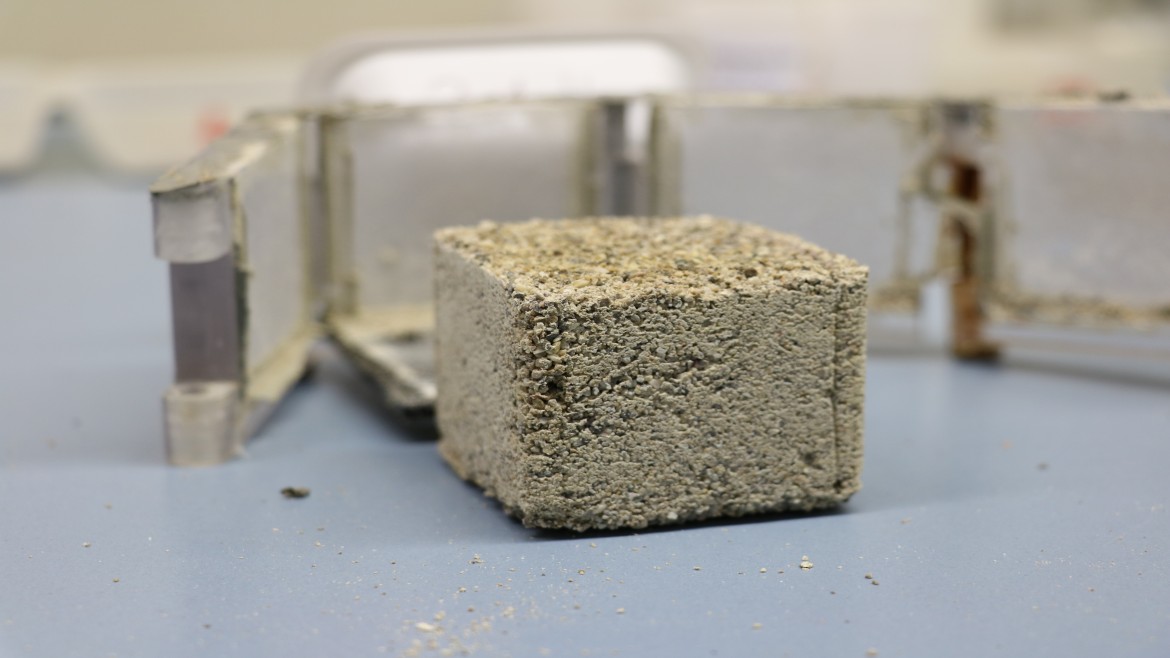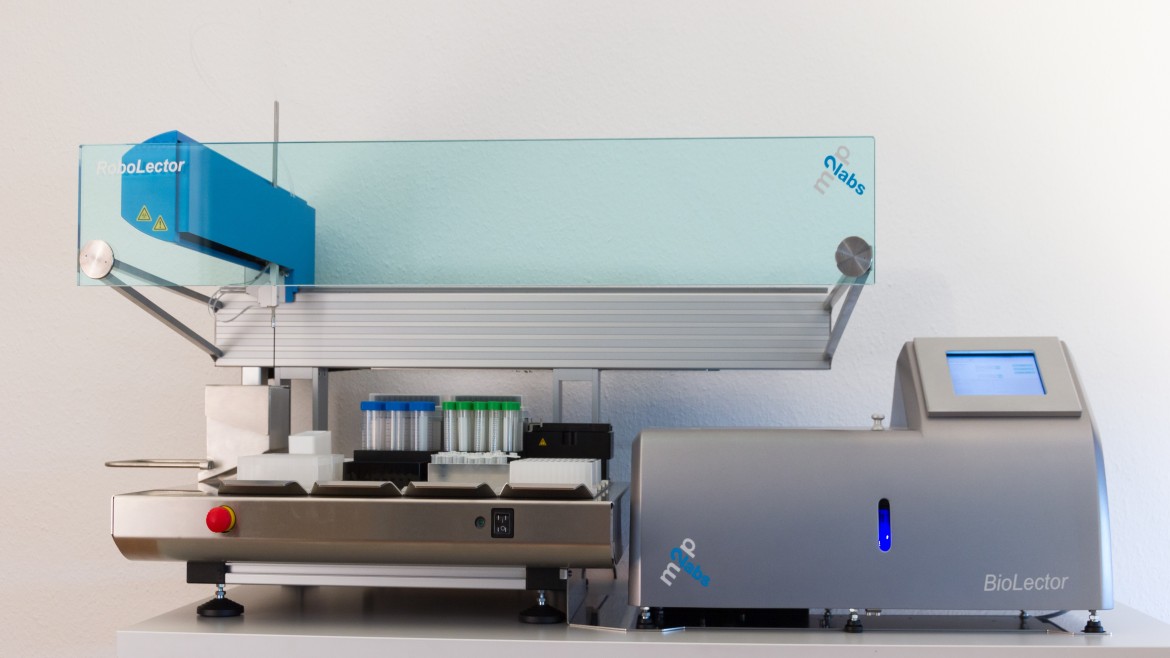MicrobialCrete
Application of biocementation in civil engineering
Prof. Dr. Robert Huber
Department of Engineering and Management
Prof. Dr.-Ing. Andrea Kustermann
Department of Civil Engineering
The interdisciplinary research project „MicrobialCrete“ aims at developing innovative biobased construction materials for restoring buildings and further applications. To achieve this goal researchers from different departments (Engineering and Management / Civil Engineering) of the Munich University of Applied Sciences join forces with three industry partners. The project is funded by the Federal Ministry of Education and Research (program FHProfUnt).
Due to huge investments in maintaining concrete buildings and the resulting accumulation of concrete debris innovations in this sector are urgently needed – especially with respect to sustainability and resource efficiency. At the moment mostly plastic-modified materials are used for maintaining concrete.
To replace these materials special microorganisms can be applied, which are capable to produce calcium carbonate precipitates. This phenomenon is called microbial induced calcite precipitation (MICP) or biocementation. The precipitating calcium carbonate can close cracks and pores in concrete and protects it from further damage. In comparison with traditional techniques this method is environmentally friendly because it is mostly based on sustainable resources.
A huge issue when using MICP is a lack of unterstanding of the cementation process itself and the cultivation of the microganisms used. These microorganisms have to be chosen and examined according to the requirements of the particular MICP applications, e.g. stability at high pH values or chloride concentration. Furthermore, the bacteria must be produced in large quantities, which is quite difficult as the costs for media components are often too high and at the same time biomass yields are low. Hence, a major aim of the project is to apply highthroughput techniques, such as automated microbioreactor systems, to faster select suitable microorganisms for various MICP applications and to develop bioprocesses more efficienctly and cost-effectively.
The selected bacteria will be applied for maintaining concrete buildings and masonry. Here, the impact of the biocementation on cracks in concrete structures will be investigated, enabling higher durability of building materials, especially reinforced concrete. Finally, the phenomenon of MICP will be tested and optimized with the involved partners in the fields of soil stabilization, immobilization of pollutants in soil and dust control in the mining industry.


Running duration:
01.10.2019 – 30.09.2022
Funded by:
Federal Ministry for Education and Research, Funding line FHProfUnt
Project Executing organisation:
VDI Technology Center
Partnerinstitute:
- Biochemical Engineering at RWTH Aachen University
- Institute for Materials in Civil Engineering of the University of the Federal Armed Forces Munich
Project Partners:
- Dust BioSolutions GmbH
- Geosystems Spezialbaustoffe GmbH
- Wacker Chemie AG